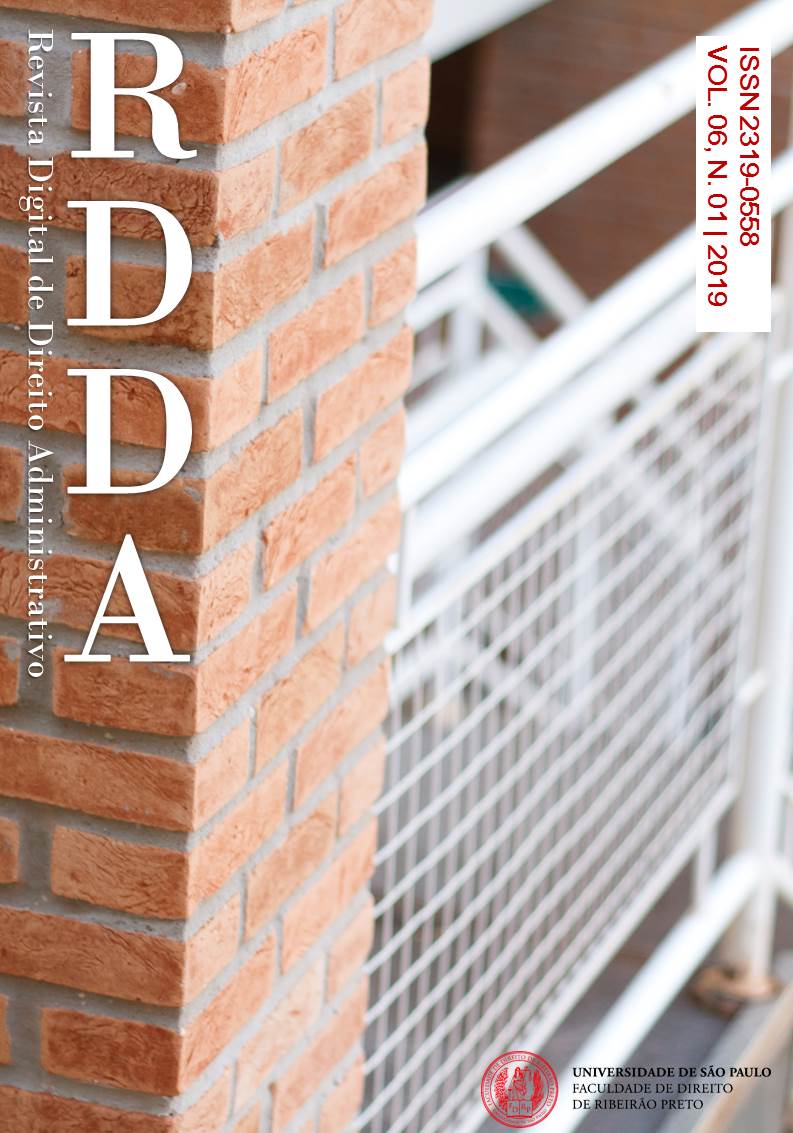Remuneration limits in lawful accumulation of offices and public functions and the transformations of Administrative law
analysis of the Brazilian Supreme Court cases
DOI:
https://doi.org/10.11606/issn.2319-0558.v6i1p246-262Keywords:
Remuneration limit, Accumulation, Administrative Law Transformations, Brazilian Supreme CourtAbstract
The public function submitted to the statutory regime was not preserved from the recent transformations of Administrative Law. Not only has the constitutional legal model for public statutory servants passed in recent times due to changes in the constitutional text, but also the interpretation of constitutional provisions conferred by the Federal Supreme Court has evolved, coinciding with the new post-positivist paradigm of Administrative Law. This article analyzes the recent decision of the Federal Supreme Court with a general repercussion that removed the observance of the remuneration ceiling regarding the sum of the remuneration of the public agent, in the constitutionally authorized cases of accumulation of positions and functions for purposes of incidence of article 37, subsection XI of the Federal Constitution. Analyzing the votes, it is verified that important aspects were debated about the transformations of Administrative Law, with emphasis on the new post-positivist paradigm that consists in the realization of fundamental rights. Finally, with regard to the methodology used, the analytic-deductive model is used, having as parameter the Constitutional Law concretized.
Downloads
Downloads
Published
Issue
Section
License
Autores que publicam nesta revista concordam com os seguintes termos:
- Autores mantêm os direitos autorais e concedem à RDDA o direito de primeira publicação, com o trabalho simultaneamente licenciado sob a Creative Commons Attribution-NonCommercial-ShareAlike 4.0 International License. que permite o compartilhamento do trabalho com reconhecimento da autoria e publicação inicial nesta revista.
- Autores têm autorização para assumir contratos adicionais separadamente, para distribuição não-exclusiva da versão do trabalho publicada nesta revista (ex.: publicar em repositório institucional ou como capítulo de livro), com reconhecimento de autoria e publicação inicial nesta revista (referência à RDDA).
- Autores têm permissão e são estimulados a publicar e distribuir seu trabalho online (ex.: em repositórios institucionais ou na sua página pessoal) a qualquer ponto antes ou durante o processo editorial, já que isso pode gerar alterações produtivas, bem como aumentar o impacto e a citação do trabalho publicado (Veja O Efeito do Acesso Livre).


